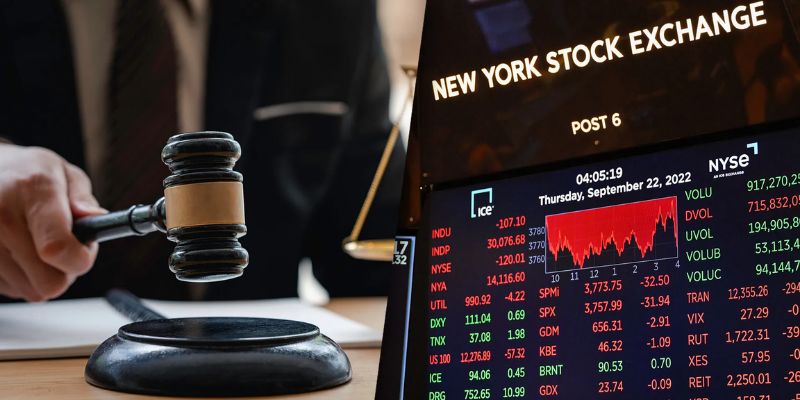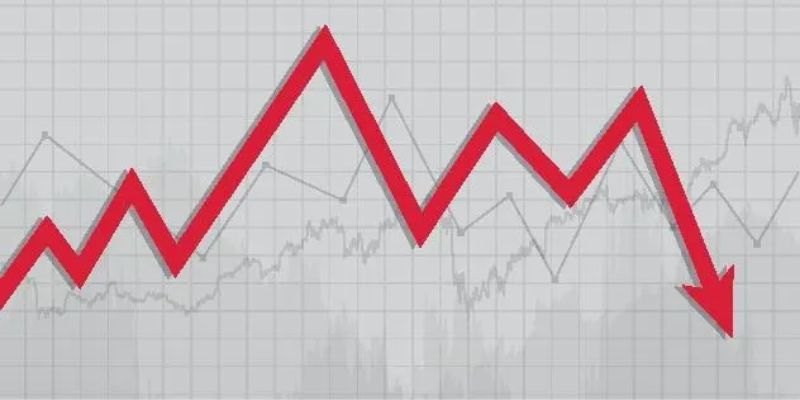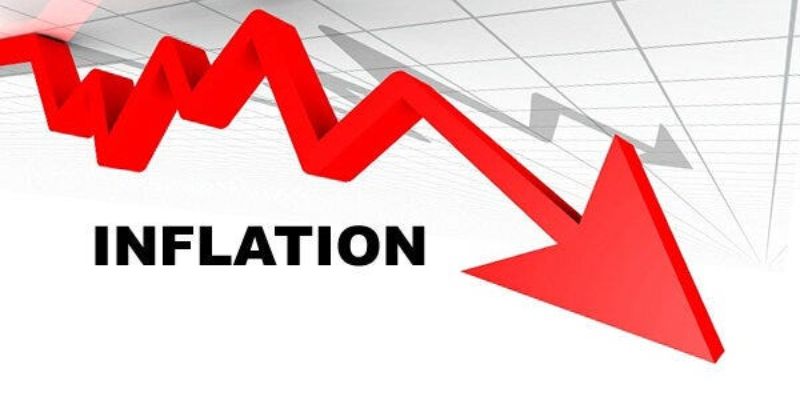Stock Market Regulations: Navigating the Maze of Financial Compliance
In a world where money talks, stock market regulations ensure it doesn’t blabber. I dive into the tangled web of rules that keep your investments and the economy on track. From the SEC’s iron grip on compliance to the intricate dance of IPOs and algorithmic trading, I unpack the legal safeguards designed to protect players like you. We’re talking about what keeps your portfolio safe and the market fair, so let’s peel back the layers of what can seem like Wall Street’s biggest code to crack. Strap in; it’s time to take the wheel in this financial labyrinth.
Understanding the Securities and Exchange Commission’s Role in Market Regulation
The Pillars of SEC Compliance
The SEC keeps markets fair. Think of it as a school’s rule keeper. They make sure companies play fair with your money. They check on insider trading laws, and other stock trading rules. Their job is key to keeping trust in our markets. We have things like the Sarbanes-Oxley Act, thanks to them. Also, the Dodd-Frank Act helps too. They both make companies tell the truth about money.
Firms can’t just do as they please. They must follow SEC compliance. This includes following IPO guidelines and avoiding bad deeds like market manipulation. Besides, brokerage firms must meet licensing needs. That’s a lot of rules to keep track of! But for good reason. It helps you, the investor. It keeps your investments and markets safe.
There’s a big focus on disclosure requirements too. Firms must share details of how they work. They must tell what they own, owe, and how they make money. This way, you can make smart choices with clear info.
Overview of Enforcement Actions Against Securities Violations
Say a firm breaks trading rules. The SEC steps in. They look into things and can punish those who don’t play by rules. They can give out fines, or even ban them from the trade world. You might’ve heard of big cases in the news. Firms and big bosses can get into deep trouble for cheating.
It’s not just about making people pay for mistakes. It’s to stop others from trying the same tricks in the future. The idea is, if they see the SEC means business, they’ll think twice.
So when you hear “SEC,” think of a guardian. They watch over the markets, so everything’s on the up and up. It helps us all have faith that when we put money in stocks, we’re in a fair game. And when things aren’t fair? The SEC is there to set them right, keeping our trust in markets strong.

The Legal Framework of Investor Protection and Corporate Responsibility
Key Provisions of the Sarbanes-Oxley and Dodd-Frank Acts
When we talk about laws keeping our money safe, two names stand out. These are the Sarbanes-Oxley Act and the Dodd-Frank Wall Street Reform. They may sound like a mouthful, but their job is simple.
They make sure companies tell the truth about their money and play by the rules. Think of Sarbanes-Oxley as a big checklist. It says companies must check their money reports are right. They also can’t destroy money records, and bosses can’t lie about how the company is doing.
Dodd-Frank came after a big money mess, called the 2008 financial crisis. This act said we can’t let companies be too big to fail. It made new rules so money risks would be seen before they turned into big problems. It also said let’s watch over big money trades closely.
Implementing Robust Corporate Governance
Corporate governance is like a plan for how to run a business right. It’s a set of rules that make sure companies serve not just their bosses, but also us, the people who invest our money in them.
It’s about being fair and open with info. When a company follows good governance, they protect us, the investors. They share info we need to know before we decide to buy their stocks.
This includes stuff like who owns the company, how much debt they have, and if they’re making or losing money. A good company also has plans to handle hard times without cheating or hiding the truth.
We make sure companies stick to these plans — it’s not just a promise. There are groups like the SEC and FINRA who check and double-check this stuff. They use rules and tech to keep an eye on the markets, kind of like teachers in a test.
They spot people who break rules and make sure they get punished. This helps stop cheats from messing up the game for the rest of us. These rules may seem tough, but they help everyone play fair. This brings trust to our money markets, and when we trust the game, more of us want to play.
Stock trading rules and investing regulations keep markets in line. Folks who don’t follow SEC compliance can land in hot water. Insider trading laws stop people with secret info from making unfair trades. IPO guidelines make sure new companies list their stocks the right way.
The goal is to shut down market manipulation and watch over the financial market. Brokerage licensing, investor protection laws, and everything down to trading hours support this mission.
Long story short, tough rules and sharp eyes keep our stock markets safe. They help us trust the game enough to play. And that’s how we look after each other’s backs in the tricky world of stocks.

The Intricacies of Trading: From IPOs to Algorithmic Transactions
Comprehending Insider Trading Laws and IPO Guidelines
Insider trading laws keep things fair. They stop those with secret company info from making unfair trades. An insider is someone like a company executive. The law says they must not use private info to trade stocks. If they do, they can get in big trouble, like fines or jail. You might wonder, “When can insiders trade their own company’s stocks?” Well, insiders can trade, but only following strict rules. They must report their trades to the SEC. This way, everyone knows what insiders are doing.
IPO guidelines are also key when a company first sells stocks to the public. These rules make sure a company tells the truth about its finances. For a successful IPO, companies must meet many standards. One main rule is they need to show their financial records, risks, and plans in detail.
Regulating Algorithmic Trading to Curb Market Manipulation
Algorithmic trading uses computer programs to make fast trades. It’s complex and can push stock prices around if not watched over. It’s why SEC compliance is so crucial. Regulations make sure these programs don’t break the rules, like causing false stock prices or cheating the system.
But how do we keep track of these super-quick trades? Market surveillance systems to the rescue! These are like high-tech watch guards. They scan all the trading data to catch anything that seems off. If they spot trouble, such as signs of market manipulation, they alert the authorities.
Regulating algorithmic trading helps everyone. It makes sure the market is smooth and honest. Rules make it clear what’s okay and what’s not. So traders can’t use sneaky tactics to gain an edge.
Keeping trading fair means that you and I can trust the market. When rules are strong and clear, it creates a level playing field. It helps our money grow the right way, through smart, honest investing. Let’s hear it for the rules that keep the game fair!

Market Integrity and Surveillance: Preventive Measures and Oversight
Deployment of Market Surveillance Systems
Ever wonder how markets stay fair? It’s like a referee in sports. We have systems that watch over trades. They check for cheats and keep players honest. With these tools, we catch fishy deals fast. We need rules for safe and fair stock trading. These systems help follow the stock trading rules.
Think of the stock market as a busy airport. Just like air traffic control, market surveillance systems manage the flow. They track every move to prevent crashes. The SEC leads this with strict compliance rules. It’s like a video game cheat code detector, but for real-life stock trades.
Surveillance also targets insider trading laws. This means if someone tries to sneak an unfair advantage, these systems can spot it in a flash. It’s like when you play tag, and there’s a no-tag-backs rule. If you break it, others will call you out, right? Just like that, only with stocks!
Impact of Anti-Money Laundering Standards on Trading Security
Now, let’s talk about keeping bad money out of good places. Anti-money laundering standards do just that. They make sure crooks can’t clean their dirty money through the market. This is investing regulations at their best. We’re talking about big rules that keep our money safe.
Think of it as a filter for your water. Just like the filter catches bad stuff, these rules catch shady money. It makes investing cleaner and more reliable for everyone. Every player must prove their money is clean. This is like showing you’ve washed your hands before dinner!
These standards affect how brokers handle cash. They have to check where the money comes from, just like when your friend gifts you a toy. You’d want to know if it’s really from them, or if they took it from someone else! Right? Brokers have to be that careful too.
Remember, rules keep us safe. Just like at school or a game. Market rules do the same. They make sure no one cheats and that everyone has a fair shot. It’s not fun if someone’s always peeking at your cards, right? These rules block the peekers and keep the game straight.
Would you want to play a game where someone always wins by cheating? No, right? Well, investing is a big game where no cheating should happen. That’s why we need strong laws and sharp eyes. This is how we guard our cash and trust in the market!
Like a castle with guards, market rules and systems keep watch. Money has to pass strict checks to enter the market. This keeps the bad guys out. It’s like having a no-robbers-allowed sign, but much, much stronger!
These measures, from surveillance systems to anti-laundering rules, work together. They keep the market safe like a well-guarded treasure. Each rule is a piece of armor protecting it. That’s how we keep trust in the game of investing. And that’s the game we all want to play!
We’ve dug into the SEC’s role in keeping markets fair. From setting compliance pillars to taking action when rules break, they’ve got a big job. We’ve also seen how laws like Sarbanes-Oxley and Dodd-Frank work to protect investors and push for honesty in companies. Plus, we tackled the complex world of trading. This includes the nitty-gritty of insider trading laws and the rules for when a company first sells stock. High-tech stuff like algorithmic trading has rules too, to stop unfair moves in the market.
We’ve also learned that to stop bad acts before they start, the market gets watched all the time. Tools that watch trading help, and tough rules against money laundering keep trading clean. All these actions are about making sure everyone plays fair, and that you, the investor, can trust the game. Trust me, it’s a big deal, and understanding it can make you a smarter investor. So, think on what you’ve learned – it could be gold for your investing smarts. Keep an eye on the market, and remember, the SEC is there to keep things in check.
Q&A :
What are the basic rules and regulations of the stock market?
Stock markets globally are governed by a comprehensive set of rules and regulations to ensure fairness and transparency in financial trading. These regulations aim to protect investors, maintain orderly markets, and promote market integrity. Basic rules include requirements for public disclosure, prohibitions against insider trading, and mandates for financial reporting. Regulatory organizations like the SEC in the U.S. enforce these rules and supervise market participants.
How do stock market regulations affect investors?
Investors are directly impacted by stock market regulations, as these rules are in place to protect their interests. Regulations create a level playing field by ensuring that all investors have access to essential information needed to make informed decisions. They also work to prevent fraud and manipulative trading practices which can harm investor confidence and investment returns. Compliance with these regulations is crucial for the health of the financial markets and the safety of investment capital.
Who is responsible for enforcing stock market regulations?
Enforcement of stock market regulations is typically the responsibility of financial regulatory bodies. In the United States, the Securities and Exchange Commission (SEC) plays a primary role in enforcing federal securities laws and overseeing the securities industry, including stock exchanges and other activities. Other countries have their own regulatory authorities, such as the Financial Conduct Authority (FCA) in the United Kingdom or the Securities and Exchange Board of India (SEBI).
Can stock market regulations differ by country?
Yes, stock market regulations can vary significantly from one country to another. Each country has its own set of regulations and governing bodies that oversee their markets. While some regulatory principles such as transparency, fairness, and investor protection are common across most markets, the specific rules and implementation can differ. Due to these variations, international investors often must familiarize themselves with the regulations of each market in which they invest.
What are the consequences of not complying with stock market regulations?
Non-compliance with stock market regulations can lead to severe consequences, including financial penalties, restitution to harmed parties, and in some cases, criminal charges. Violations such as insider trading, market manipulation, or failure to provide accurate information to the public can result in sanctions not only to the offending parties but also to the entities they represent. Repeat offenses or extreme violations can lead to more stringent outcomes such as trading bans or company de-listing from stock exchanges.

